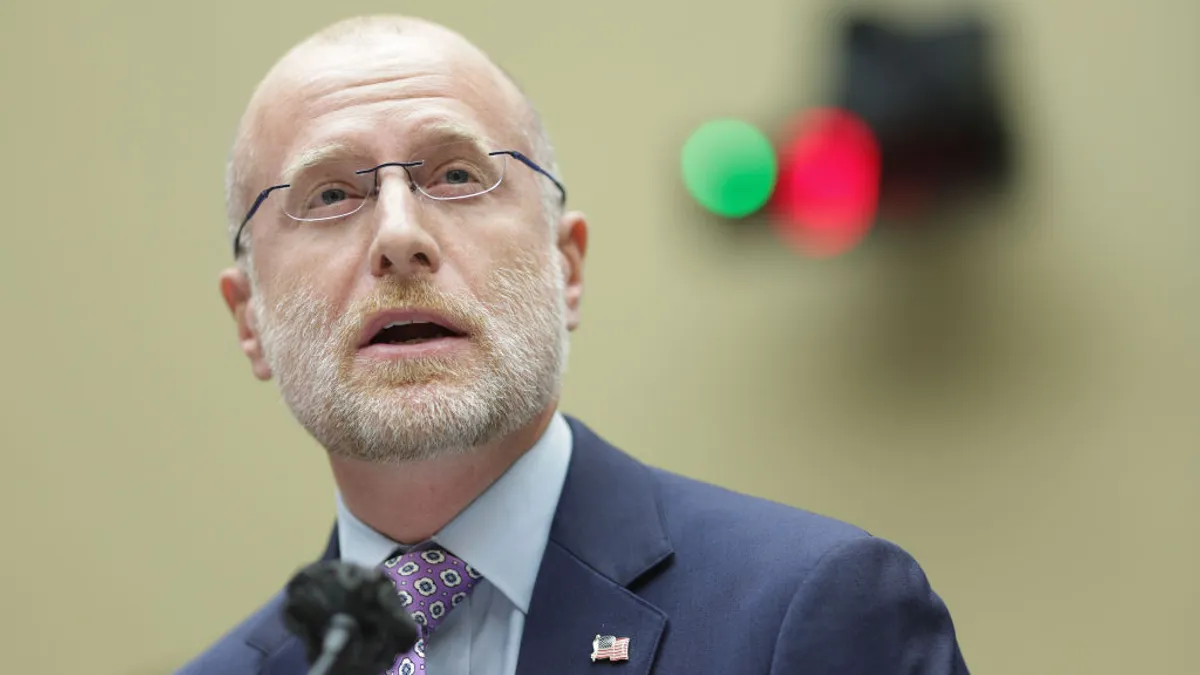Dive Brief:
- President-elect Donald Trump’s pick to chair the Federal Communications Commission, Brendan Carr, said he is deeply concerned about the recently uncovered swarm of attacks on U.S. telecom companies.
- Carr, a member of the five-person commission since 2017, said he began to receive intelligence community briefings after Trump tapped him to run the FCC last month. The information he learned during a recent chair-level briefing “made me want to basically smash my phone,” he said in a Friday interview with CNBC.
- “This is deeply concerning,” Carr said. “We should not be in this situation. In many ways, the horse is out of the barn at this point.”
Dive Insight:
Carr’s comments about the China-government sponsored attacks on U.S. carriers’ infrastructure followed current FCC Chair Jessica Rosenworcel’s proposed rule changes that would require telecom operators to secure their networks and maintain cybersecurity risk management plans.
Salt Typhoon, the China-linked threat group, has infiltrated and maintains access to at least eight telecom providers in the U.S., federal cyber officials said last week. The campaign has been underway for up to two years and U.S. officials still don’t know the full extent of damages caused by attacks or what remains at risk.
“We need all hands-on deck to try to address this and rein this in,” Carr said. “I’m going to work with the transition team, make sure we’re supporting the intelligence community right now.”
U.S. officials began warning about an expansive China-government sponsored campaign to intrude U.S. critical infrastructure, including telecom networks, in February.
Early assessments indicated the China-linked effort was in preparation for future attacks. Salt Typhoon’s objective is for espionage but could be pre-positioning for “disruption at a time of crisis or conflict as well,” Anne Neuberger, deputy national security advisor for cyber and emerging technology, said in a Wednesday media briefing.
“We’re in a tough, tough spot with this particular issue,” Carr said. “It’s a serious one, and we’ve got to support [the intelligence community] to try to resolve this quickly.”












